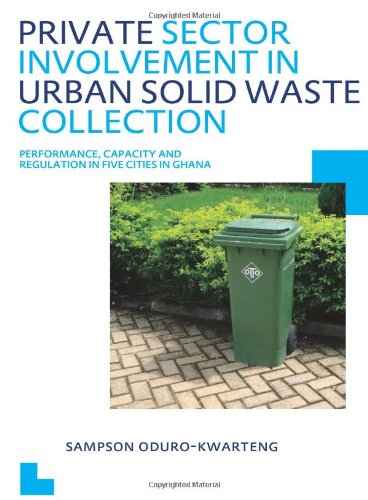

Most ebook files are in PDF format, so you can easily read them using various software such as Foxit Reader or directly on the Google Chrome browser.
Some ebook files are released by publishers in other formats such as .awz, .mobi, .epub, .fb2, etc. You may need to install specific software to read these formats on mobile/PC, such as Calibre.
Please read the tutorial at this link. https://ebooknice.com/page/post?id=faq
We offer FREE conversion to the popular formats you request; however, this may take some time. Therefore, right after payment, please email us, and we will try to provide the service as quickly as possible.
For some exceptional file formats or broken links (if any), please refrain from opening any disputes. Instead, email us first, and we will try to assist within a maximum of 6 hours.
EbookNice Team

Status:
Available0.0
0 reviewsThe private sector involvement in public service is intended to achieve efficiency gain and better service quality through increasing private sector finance and expertise. However, these benefits are most often not achieved in developing countries due to investment risk of private finance, and problems of capacity and regulation of the private sector. This book examines private sector involvement (PSI) in solid waste collection by exploring the influence of private sector capacity and Local Governments’ regulations on private sector performance in terms of productivity and service quality. PSI in public service provision evolved to deal with market and government failures, so this study uses market and regulatory theories to explore the gaps in policy and practice of PSI and the factor explaining private sector performance in five cities in Ghana.
The study shows there were weak regulatory practices and non-adherence to contractual obligations (unsigned contracts and delayed payment of subsidy), and consequently led to disincentives for full cost recovery and better service quality. However, there is now a gradual well functioning system being put in place with the recent competitive bidding in two cities with signing of contracts and city-wide user charging. This study concludes that the solutions to the problem of solid waste collection and management in developing countries hinge on adherence to formal rules of regulation, use of appropriate cost recovery mechanism for low income group, and restructuring of institutional arrangement to enforce legislation.